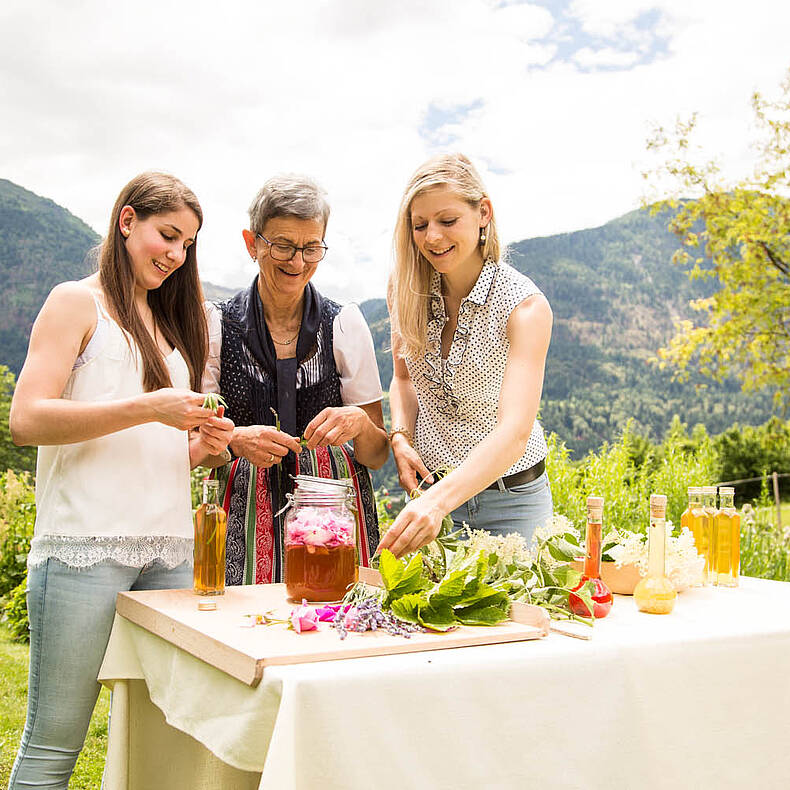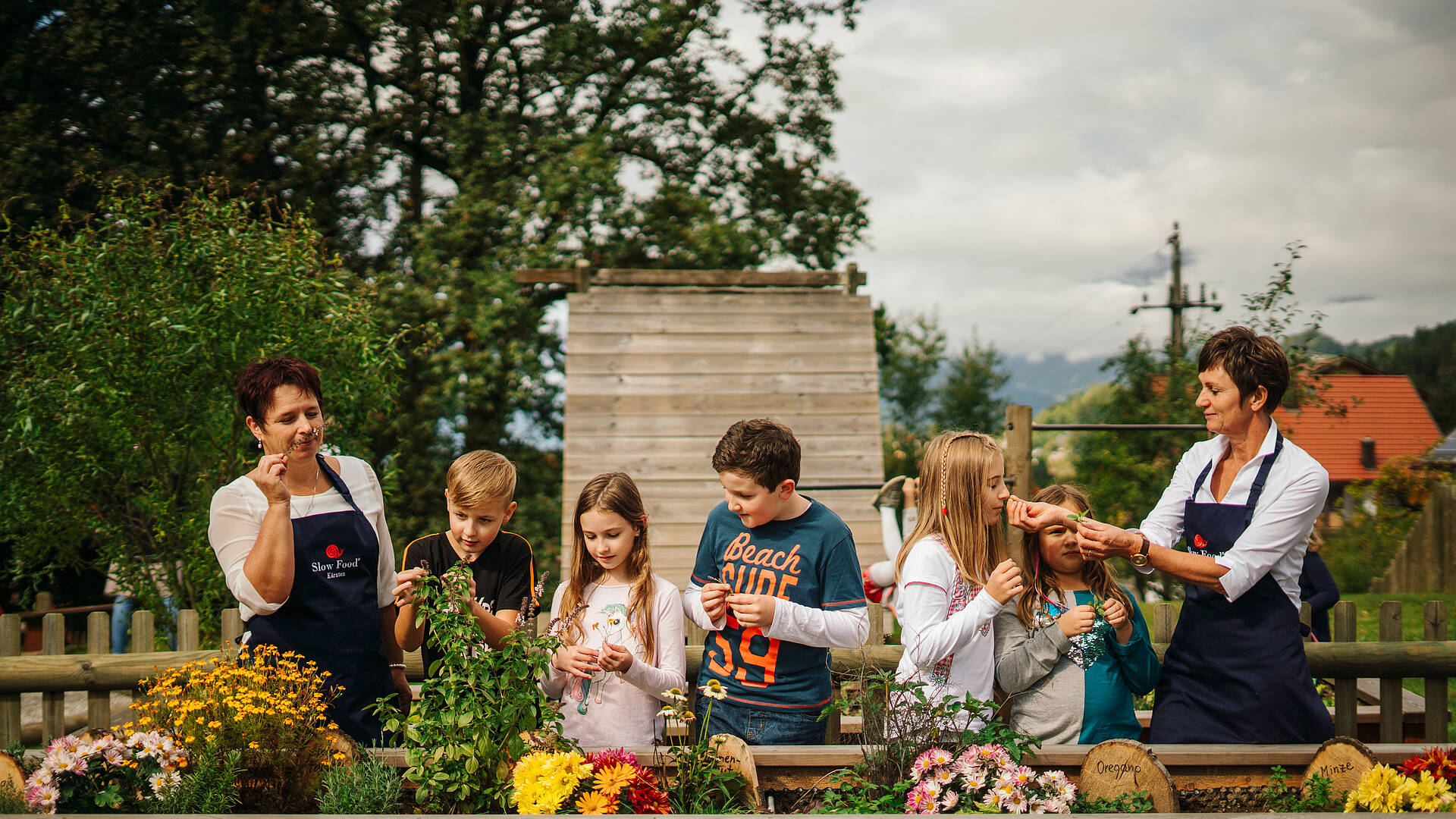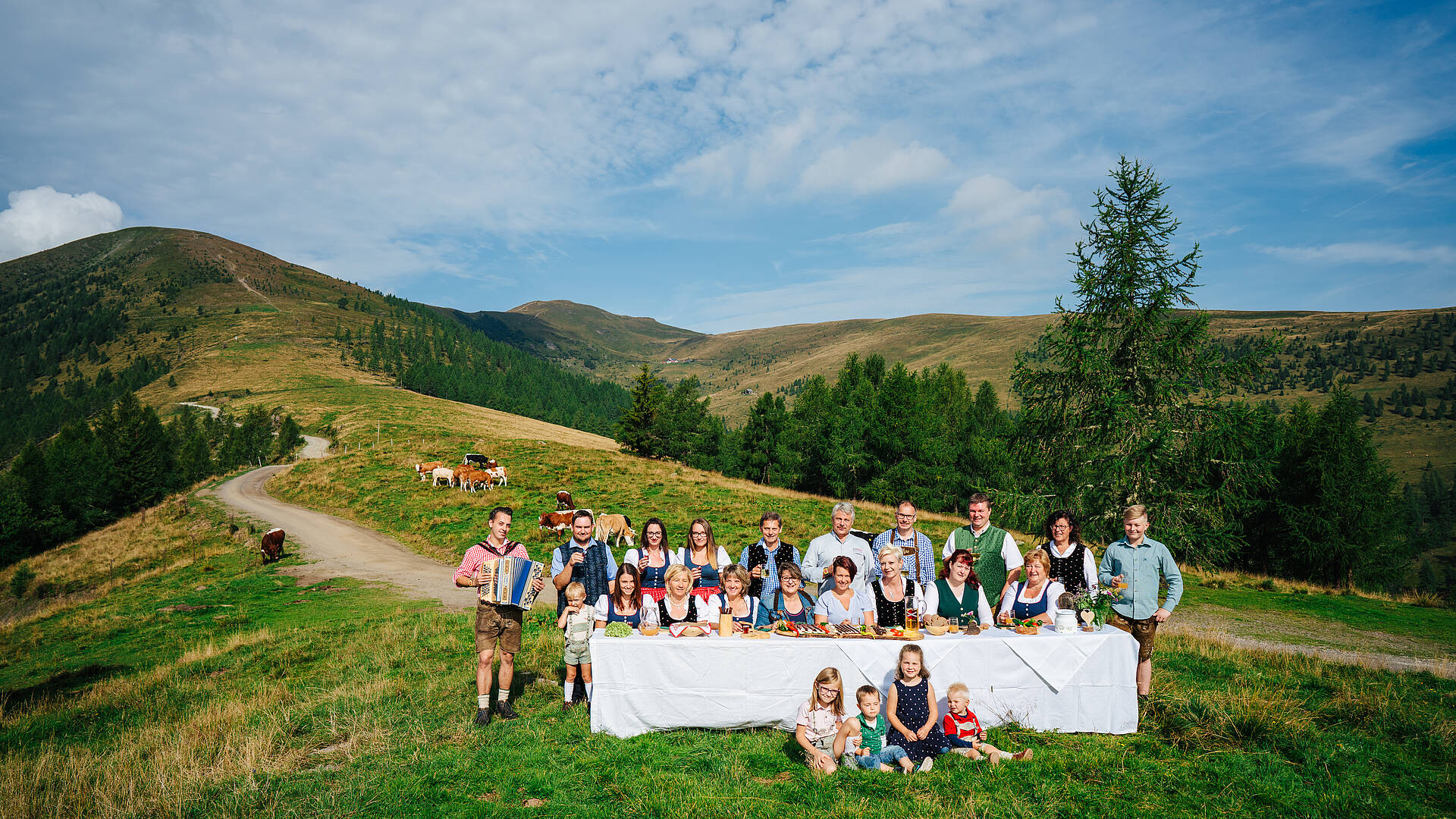What began as the world’s first Slow Food Travel Destination in the Gailtal and Lesachtal valleys some years ago has now taken hold of the entire province. Slow Food Carinthia is an alliance of dedicated partners who are committed to a healthy and conscious food culture, looking to follow a new path of sustainability and worthwhile enjoyment.
"Conscious enjoyment" -
The focus is on seasonal, regional ingredients and the production and refinement of homemade products. Rediscover old recipes, create culinary treasures in harmony with nature, produce sustainable food and sit down together to enjoy it. In addition to conscious enjoyment with a view to the future, there must also be room to look back at the past. Today’s unique Carinthian Alpe-Adria cuisine draws on influences from its southern neighbours of Italy and Slovenia after all.


Slow Food Guide
With the Carinthian Slow Food Guide, Carinthia is shining the spotlight on all of its establishments that not only focus on local, seasonal products and their healthy preparation, but also on collaborating with regional producers as a vital contribution towards sustainability and circular economy within Carinthia. The Slow Food criteria of "good, clean, fair" saw a panel of 70 judges analyse a total of nearly 90 restaurants, around 30 alpine huts and wine taverns. In addition, the Carinthian Slow Food Guide includes tips on farm shops and specialty stores, culinary markets and festivals, Slow Food Travel and Slow Food Village events. The guide can be bought at selected book stores and tourism information centres or downloaded for free on www.kaernten.at/slowfoodguide/
Slow Food Travel and experiences
Culinary journeys come alive in the world’s first Slow Food Travel Destination of Gailtal and Lesachtal. Since last year also the Lavanttal valley in the eastern part of Carinthia and the region of Mittelkärnten are now new Slow Food Travel Destinations. These Slow Food Travel Destinations are places that look towards old traditions and honest craftsmanship. Special experiences and Slow Food trips allow a look over the shoulder, from baking bread to producing cheese, "crimping" Kärntner Käsnudel (called "krendeln" in German), sampling homemade ice cream from the farm, brewing beer and watching beekeepers harvest their honey.


With a view to the future: Slow Food Villages and Slow Food Schools
In the world’s eleven first Slow Food Villages, visitors can embark on a voyage of discovery to small agricultural food producers who follow the principals of good, clean craftsmanship across Carinthia. Local establishments offer authentic, honest food and the Slow Food communities pass on their knowledge of the value and production of good food at cooking workshops, nurseries and schools. Those looking to purchase regional produce will find a wide selection at the "Orte des guten Geschmacks" (places of great taste), farm shops, direct sellers and local suppliers.








